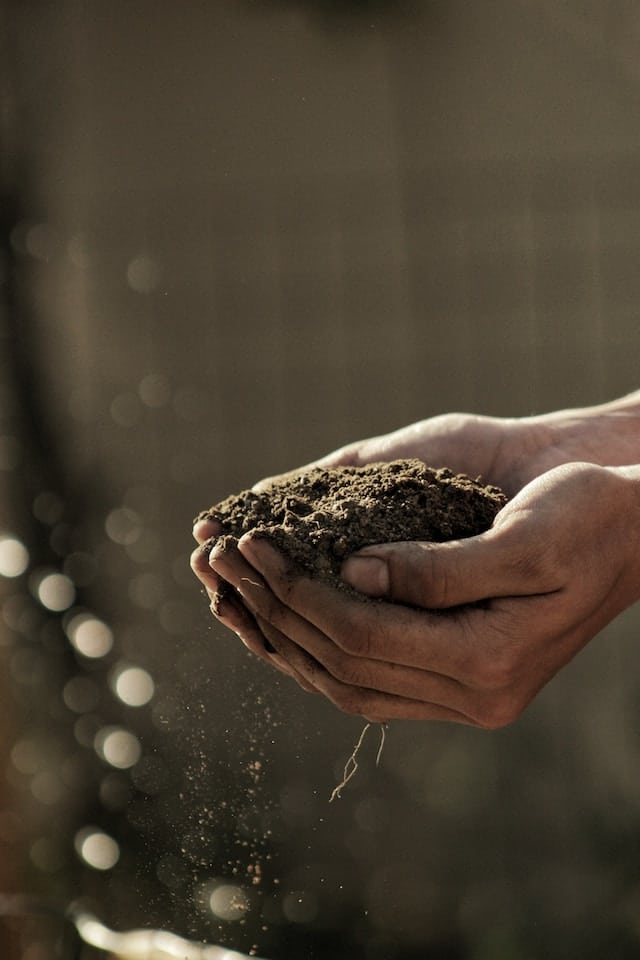The emerging role of tech in sustainable agriculture

From the dawn of time, agriculture has been a key element of human civilization. Today, it represents more than just the cultivation of crops and the rearing of livestock. It’s a multi-dimensional sector that faces numerous challenges, ranging from environmental degradation to population growth. Yet, as these challenges increase, we are also witnessing a transformative shift in the agricultural sector. A wave of new, disruptive technologies is reshaping how farming is done. The development of sustainable agricultural technologies is leading the charge in creating an environmentally conscious, efficient, and productive farming system.
The Intersection of Technology and Sustainable Agriculture
At the crossroads of technology and sustainable agriculture, we are seeing remarkable innovations. These technologies are helping farmers manage their resources more efficiently, increase crop production, and reduce the environmental impact of farming activities.
A lire en complément : The role of video marketing in modern business strategies
Digital technologies, for instance, are providing farmers with the tools to monitor and manage their farms in real-time. They are using sensors to track soil health, water usage, and crop health, providing them with data to make informed decisions. These technologies highlight the critical role of data in modern agriculture, enabling farmers to optimize their operations and reduce waste.
Furthermore, advancements in agricultural technology are not just confined to the digital realm. Innovations in areas such as bioengineering, nanotechnology, and robotics are also transforming the way we farm. These advancements are helping us create healthier crops, more efficient farming techniques, and ultimately, a more sustainable food production system.
Cela peut vous intéresser : The emerging role of robotics in industry and business
Digital Technologies in Modern Farming
The introduction of digital technologies in farming has revolutionized agricultural practices. We are now seeing farmers adopting digital tools to manage their farms effectively.
Precision agriculture, for instance, uses GPS, remote sensing and other tools to monitor field variation in soil characteristics, pests, diseases, weather, and other factors. This technology provides farmers with a precise understanding of their field conditions, allowing them to adapt their management strategies accordingly. The result is an optimized use of resources, which not only saves costs but also reduces the environmental impact of farming activities.
Farmers are also using digital platforms to connect with other farmers, experts, and stakeholders in the agriculture sector. These platforms are fostering a sense of community among farmers, encouraging knowledge sharing, and promoting the adoption of sustainable farming practices.
Sustainable Water and Soil Management
In an era of increasing climate variability, sustainable water and soil management have become paramount. As such, the use of technology to manage these resources more efficiently is a critical development in sustainable agriculture.
Technologies such as drip irrigation systems, for instance, are helping farmers use water more efficiently. These systems deliver water directly to the root zone of plants, reducing evaporation and runoff. Moreover, sensors are being used to monitor soil moisture levels, providing farmers with real-time data to make informed irrigation decisions.
Soil management technologies are also playing a significant role. Farmers are using digital soil maps and sensors to monitor soil health and manage it more effectively. These technologies allow farmers to understand the specific needs of their soil, enabling them to apply the right type of fertilizers and amendments.
The Role of Emerging Technologies in Crop Production
Emerging technologies are playing a transformative role in crop production. From bioengineering to artificial intelligence, these technologies are enhancing our ability to produce food sustainably.
Bioengineering, for instance, is helping us develop crops that are more resistant to pests, diseases, and harsh environmental conditions. These genetically modified crops are helping reduce the use of agrochemicals, mitigating their impact on the environment.
Furthermore, artificial intelligence (AI) and machine learning (ML) are being used to predict and manage pests and diseases. These technologies analyze vast volumes of data to predict potential outbreaks, providing farmers with the information they need to take preventative measures. This proactive approach reduces crop losses and the use of pesticides, contributing to more sustainable farming practices.
The Future of Sustainable Agriculture: A Tech-Driven Approach
As the challenges in agriculture intensify, the call for a more sustainable and efficient farming system grows louder. Technology will play a critical role in answering this call, driving the transformation towards a more sustainable agricultural sector.
Cutting-edge technologies such as drones, autonomous tractors, and blockchain are starting to make their way into the agricultural sphere, promising to further disrupt the way we farm. Drones and autonomous tractors, for example, can automate many farming tasks, reducing labor costs and increasing efficiency.
Blockchain, on the other hand, could revolutionize the agricultural supply chain, enhancing traceability and transparency. This technology could provide consumers with detailed information about the origin of their food, empowering them to make more sustainable choices.
The rise of technology in agriculture signifies an exciting era for the sector. As we move forward, the integration of these technologies will be crucial in building a sustainable agricultural system that is resilient, efficient, and environmentally friendly.
Leveraging Machine Learning and Artificial Intelligence in Sustainable Agriculture
The role of machine learning and artificial intelligence is increasingly pivotal in the advancement of sustainable agriculture. These technologies are not only enhancing decision-making processes but also revolutionizing the way farmers approach crop production.
Artificial intelligence-based systems can analyze a wide variety of data, ranging from soil conditions to weather patterns. These systems are capable of providing precise predictions about potential issues, such as pest infestations or diseases. By utilizing AI, farmers can proactively address these problems, thereby minimizing crop loss and reducing the need for harmful pesticides.
Machine learning, a subset of AI, is also making significant strides in agricultural practices. It’s being used to develop models that can learn from and make predictions based on data. For example, machine learning algorithms can analyze past weather patterns to predict future conditions, enabling farmers to plan their planting and harvesting schedules more effectively.
Moreover, machine learning is instrumental in precision farming. By analyzing data on soil moisture, weather conditions, and crop health, these algorithms can provide farmers with accurate real-time insights. This allows them to make informed decisions that optimize resource use and boost crop yield, all while minimizing environmental impact.
The Impact of Climate Change on Sustainable Agriculture
As our planet grapples with the realities of climate change, the agricultural sector is feeling the effects. Rising temperatures, unpredictable weather patterns, and increased incidence of pests and diseases pose significant challenges to food production. However, the integration of tech in sustainable farming practices offers a beacon of hope.
Digital tools and technologies are helping farmers adapt to these changing conditions. For example, sensors can monitor soil moisture and temperature in real time, providing crucial data that can help farmers manage their water resources more effectively in the face of unpredictable weather.
Furthermore, the use of bioengineering is aiding in the development of climate-resilient crops. These crops are genetically modified to withstand harsh environmental conditions, reduce the dependency on agrochemicals, and maintain high yields despite the challenges posed by climate change.
Emerging technologies like machine learning and artificial intelligence are also playing a pivotal role. They are being leveraged to predict the impacts of climate change on agricultural systems, enabling farmers to plan and implement effective adaptation strategies.
Conclusion: A Sustainable Future for Agriculture through Technology
Technology’s role in sustainable agriculture is clear: it’s not just an enhancer, but a game-changer. From digital tools that allow real-time monitoring and decision making, to advancements in bioengineering that create resilient crops, technology is at the forefront of transforming the agricultural sector.
As we face the challenges of population growth, climate change, and environmental degradation, a tech-driven approach to agriculture becomes increasingly crucial. The integration of technologies such as artificial intelligence, machine learning, and precision farming into our farming practices is key in creating a sustainable food production system.
The future of agriculture is undeniably intertwined with technology. As we move forward, embracing these advancements will be vital in our quest to create an agricultural system that’s not just sustainable, but also resilient and productive. The farming landscape is changing, and it’s clear that technology is leading the charge towards a more sustainable future.
